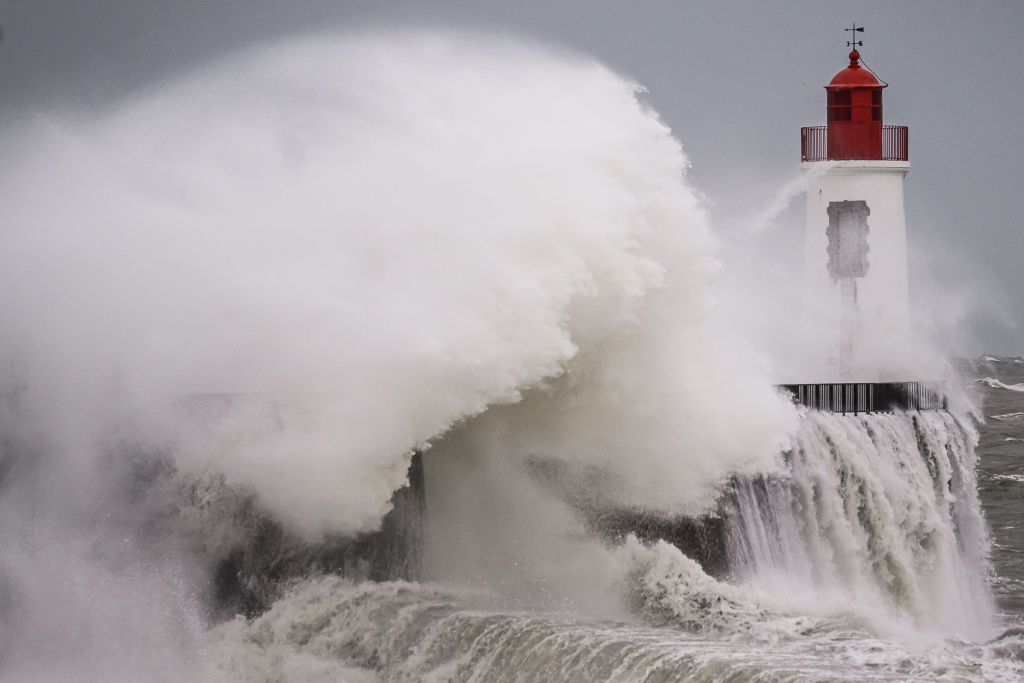
‘The Rings of Power’ Showrunners — and a Geologist — Explain That Mount Doom Surprise
Logo text
[Warning: This story contains spoilers for The Rings of Power, episode six.]
The sixth episode of The Rings of Power concluded with a spectacular reveal of an iconic Middle-earth landmark: The volcanic Mount Doom.
That mysterious sword young Theo discovered in the show’s first episode has turned out to be a key that was used to open a floodgate spilling water through those Orc-dug tunnels. The resulting torrent stream fell into the bowels of an active volcano. The mountain’s subsequent eruption as the water struck underground lava was like a nuclear bomb that turned the pastoral Southlands into what will eventually be known as Mordor.
Related Stories
In a show that could have easily have fallen back on using magic to accomplish a major terraforming twist like this one (see: every episode of The Witcher), the Mount Doom reveal was a rather clever way of using an essential element from the natural world.
Showrunners J.D. Payne and Patrick McKay say the twist was given considerable thought in the writers room, which sought to tie the reveal into one of author J.R.R. Tolkien’s biggest recurring themes.
“A huge theme in Tolkien is the environmentalism and the way machines and industrializations destroys the land,” McKay says. “We wanted that to be central and core all the time. It’s a thing that comes up again and again throughout the show. So in the writers room, we asked: What if Mordor was beautiful? All bucolic like Switzerland. And then what could happen that could transform it? We talked about the poisoning of the land — which starts in the first episode with the cow. Then you find out about the tunnels being dug and sulfur is going up into the air. It all builds toward this geologically realistic way of igniting the mountain, which now blacks out the sky for a very practical reason — Adar, our villain, sees the Orcs as his people and they deserve a home where the sun doesn’t torment them. We’re hoping it will take people by surprise.”
But could the perted water really have caused Mount Doom to explode just like in the episode? Jeffrey Karson, professor of Earth and Environmental Sciences at Syracuse University, who specializes in volcanic activity and has written about the role of water in eruptions, overviewed the basics of the concept.
“How long of an answer do you want?” Karson asked. We opted for a short version, which still ended up being a tad long. The basic idea is this: Water often plays a crucial role in causing volcanic eruptions — particularly when the volcano in question is on the sea floor. If a river poured into a land-based volcano like Mount Doom, mixed with the magma and there wasn’t a way for the resulting steam to exit (like, say, if the incoming water was blocking the hole the Orcs had dug), there could indeed be an explosion.
“Violent volcanic eruptions occur in large part because water is involved,” Karson says. “The water is dissolved in the magma. The magma rises to the surfaces, the water makes bubbles that can turn to steam and the steam and water expand so rapidly that they basically blow the magma apart. That stuff piles up near a central vent and that’s what makes big volcanos.”
That said, the resulting blowup is more likely to be a steam-venting explosion than a massive magma super-vomit that lasts for centuries in Middle-earth.
“If that water is in a confined area, like a bottleneck, there’s going to be a steam eruption — we call it a phreatomagmatic eruption,” he adds. “We see that happening in Hawaii all the time where lava flows into the ocean, and some of the lava can get blown around if the water gets trapped under it.”
The professor did question our vaguely described scenario, wondering how anybody could dig a tunnel to a magma chamber when they tend to be at least two kilometers below the Earth’s surface. For spoiler-protection reasons we couldn’t explain to him that Orcs are super-industrious creatures known to be particularly skilled at extensive digging projects.
Next week is the penultimate episode of Prime Video’s The Rings of Power’s debut season, which McKay was willing to tease a bit (spoiler free). Like episode six, it’s directed by Swedish filmmaker Charlotte Brandstrom.
“We think that Charlotte Brandstrom, the director, and Alex Disenhof, the cinematographer, did an incredible job with the seventh episode,” he says. “You’ll see who survives [the Mount Doom eruption] and there are some unlikely pairing of characters. The episode is about consequences and Galadriel is facing the consequences of her judgment.”






![500,000 Pet Cats Nationwide at Risk of Adverse Reactions from Parasite Medication [Study] 500,000 Pet Cats Nationwide at Risk of Adverse Reactions from Parasite Medication [Study]](https://i0.wp.com/1471793142.rsc.cdn77.org/data/images/full/70009/500-000-pet-cats-nationwide-at-risk-of-adverse-reactions-from-parasite-medication-study.jpg?w=768&ssl=1)



















